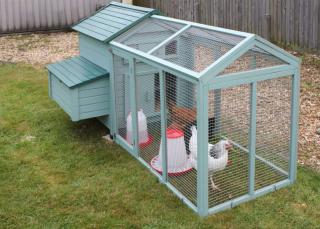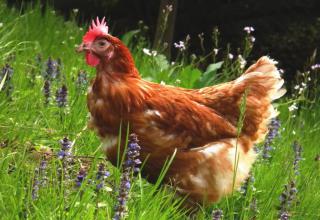

Chickens in the garden! If you’ve got a little space in the garden, setting up a chicken coop makes it possible to have fresh eggs at hand at all times.
No need to have a degree as an animal doctor or be a poultry expert to get started!

If you’ve already got a garden shed or lean-in, you can use that to house your chickens. What’s important is that your guests will have a dry place that isn’t scoured by drafts of wind to call their own. Include a few roosting rods and nesting boxes with enough space, about one square yard or meter for two chickens.
→ Remember to clean it regularly. Feathers make great fertilizer, so recycle those, too!
You can also use materials that will block off the worst of the weather: hollow blocks or wood. If your area is prone to heatwaves, place the coop in a shaded spot. Design the coop so that disinfecting the floor is easy. Cement is an ideal solution, covered with a thick layer of sawdust or straw to counter the cold. Check that the chicken coop closes well to keep possible predators away.

→ Chicken guano, excellent for plants
Chickens need space. Ideally, they’ll be set free most of the time for them to free-range. They’ll scratch their way around on their quest for food. They’ll dig up potholes in some parts of the garden to wallow in dust: this helps them get rid of parasites.

Lisbeth Jolly